If the bottom section of an upright freezer is not freezing properly, it is likely due to a malfunctioning compressor or condenser. The compressor and condenser are responsible for maintaining consistent temperatures within the freezer by circulating cool air.
If either of these components has become faulty, then the temperature on the lower shelves may be too warm for proper food storage.
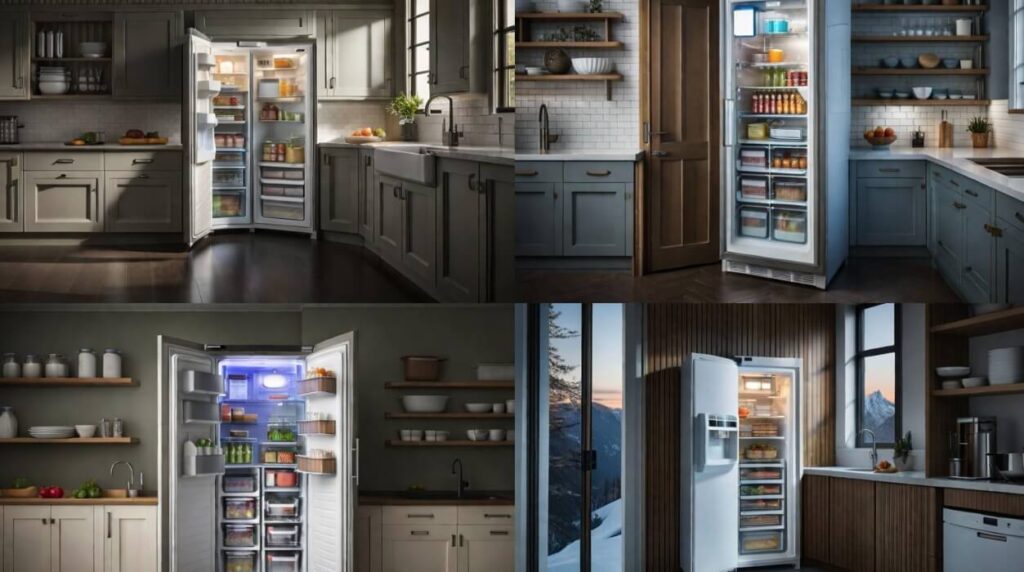
Alternatively, you may also want to consult a technician who specializes in refrigeration repairs, as they will have more experience in diagnosing and fixing issues like upright freezer not freezing bottoms.
If your upright freezer is not freezing food in the bottom of the unit, it could be a sign that something needs to be fixed. It may just need a simple adjustment or more serious repairs might be necessary. Check for any blockages near the fan and make sure all vents are clear.
Make sure that nothing is blocking airflow from entering or leaving the freezer. If these basic steps don’t help, you may need to call an appliance repair professional for further assistance.
Why is My Freezer Only Freezing at the Top?
If you have recently noticed that only the top of your freezer is freezing, there could be a few potential culprits behind the issue. One common cause is an obstructed or malfunctioning fan, which causes frost to build up at the top and not circulate properly throughout the rest of the appliance.
It’s also possible that your evaporator coils are dirty, blocked by excess ice buildup, or too close to a heat source such as an oven or dishwasher. Sometimes bottom half of the freezer not freezing.
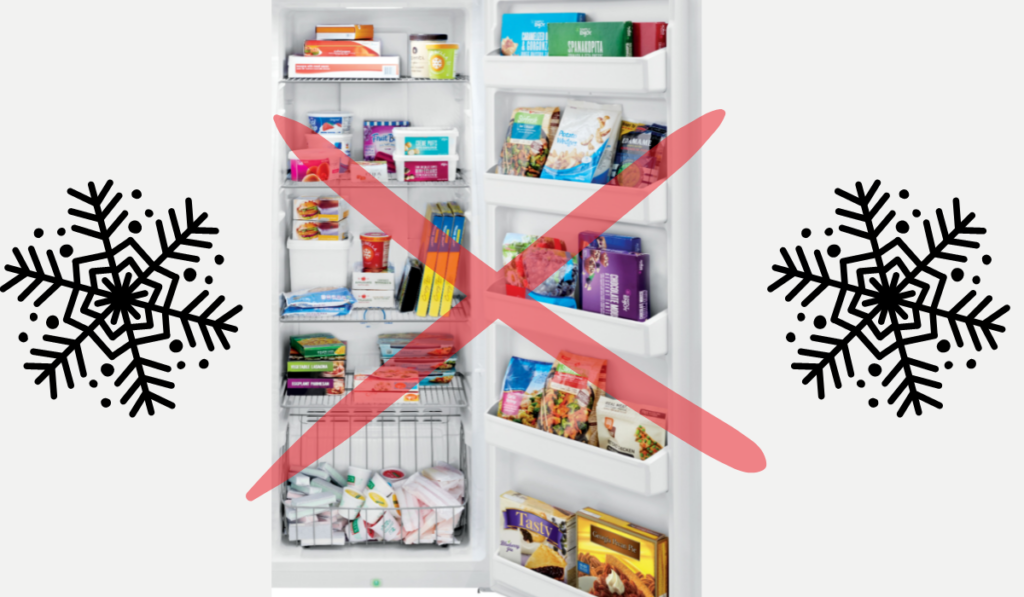
Additionally, this problem can arise if your thermostat isn’t set correctly.
To remedy these issues, try cleaning any dust from around your fan and check for any blockages in your vents before adjusting your thermostat accordingly and seeing how it responds.
If none of these solutions work, then it may be time to contact a professional technician who can diagnose what exactly is causing this problem in order to get it fixed quickly and efficiently!
Why is my freezer not freezing?
Your freezer may not be freezing for several reasons. The common causes could be a faulty thermostat or control board, improper temperature settings, a malfunctioning compressor, a damaged door seal, or overloading the freezer with too much food.
Additionally, check the power supply to ensure it is properly connected and that there are no tripped circuit breakers or blown fuses. If you’ve ruled out these simple issues and the problem persists, it’s best to consult a professional appliance repair technician to diagnose and fix the underlying problem effectively.
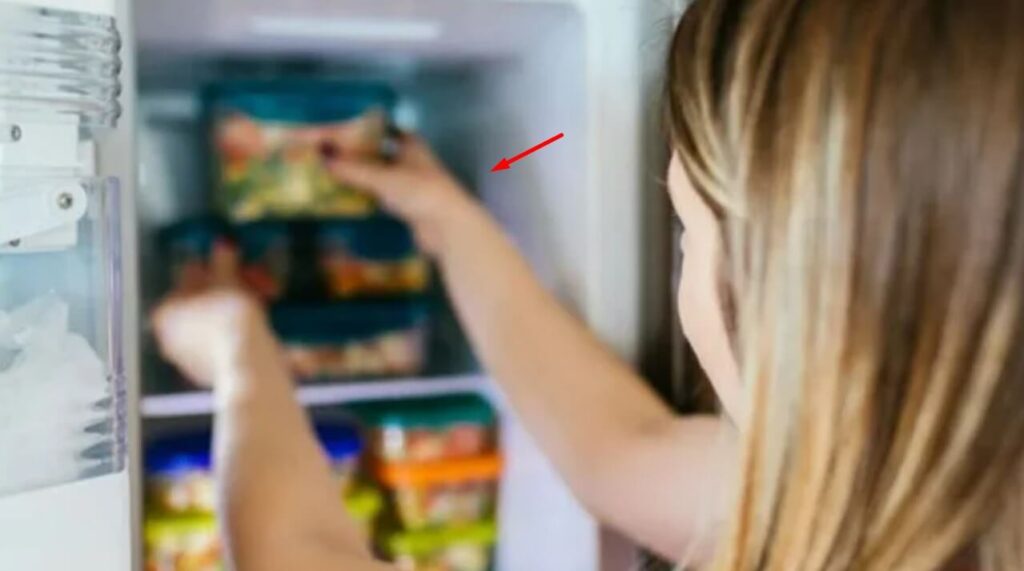
Why is My Upright Freezer Cold But Not Freezing?
There could be several reasons why your upright freezer is cold, but not freezing. The most common explanation is that the thermostat setting might be off or set too low. You should check the temperature control and adjust it accordingly to ensure optimal performance of your upright freezer.
Additionally, if the door has been left open for a while or opened and closed frequently, cold air can escape from the inside of the appliance and may cause frost buildup which can block airflow resulting in inadequate cooling.
It’s also possible that your defrost timer/heater isn’t working properly, meaning that ice and frost aren’t being melted away regularly as they should be, so you’ll need to replace them if necessary.
Finally, blocked vents due to dust buildup can impede proper circulation within and outside of your freezer leading to malfunctioning temperatures too – make sure to clean these out on a regular basis!
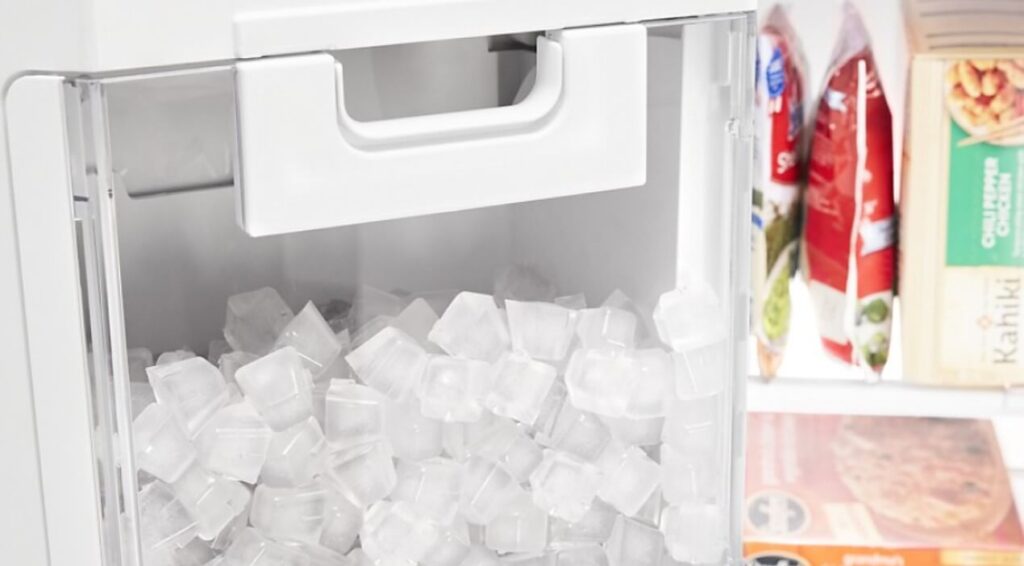
The upright freezer not cooling enough
If your upright freezer is not cooling enough, there could be several potential causes. Here are some troubleshooting tips to help you identify and resolve the issue:
- Check the thermostat: Make sure the thermostat knob is set to the correct temperature. Sometimes, the thermostat can accidentally be bumped and raised, causing the freezer to not cool properly.
- Clean the condenser coils: Over time, dust, and debris can accumulate on the condenser coils, reducing their efficiency and preventing proper cooling. Clean the coils to improve airflow and cooling performance.
- Inspect the condenser fan: The condenser fan draws cool air through the condenser and over the freezer’s coils. If the fan is broken or not functioning properly, it can impact cooling. Check if the condenser fan motor is working correctly.
- Check for airflow blockage: Ensure that there is enough space under the evaporator fan, usually located at the rear of the freezer, for cold air to circulate throughout the freezer. Overpacking the freezer can block airflow and hinder proper cooling.
- Defrost the freezer: Excessive frost buildup can interfere with cooling. If you notice a significant amount of frost, manually defrost the freezer to remove the ice and allow for better cooling.
- Review the owner’s manual: Consult the freezer’s user manual for specific troubleshooting instructions and maintenance guidelines.
If these troubleshooting steps do not resolve the issue, it may be necessary to contact a professional repair service for further assistance.
Why is My Bottom Freezer Refrigerator Not Cold Enough?
If you have a bottom freezer refrigerator and you find that it’s not cold enough, there could be several reasons why. One common problem is that the temperature isn’t set correctly. Check your user manual for instructions on how to adjust the temperature settings; if necessary, try setting it lower until you reach the desired temperature.
Additionally, make sure all air vents are unobstructed so that cool air can flow freely through them; dust or debris could be blocking airflow and preventing your refrigerator from cooling properly. If neither of these solutions works, then there may be an issue with your compressor or evaporator coils which would require professional service in order to diagnose and repair.
It’s also possible that other components need replacing such as a thermostat or fan motor – in any case, contact a qualified technician to inspect your fridge before attempting any repairs yourself.
Should There Be Ice in Bottom of Freezer?
When it comes to having ice in the bottom of your freezer, there are both pros and cons. On one hand, having a layer of ice at the bottom of your freezer can help keep food cold by providing extra insulation.
Additionally, if you have an older model refrigerator with manual temperature control, adding some ice can help maintain a colder internal temperature for better preservation and storage.
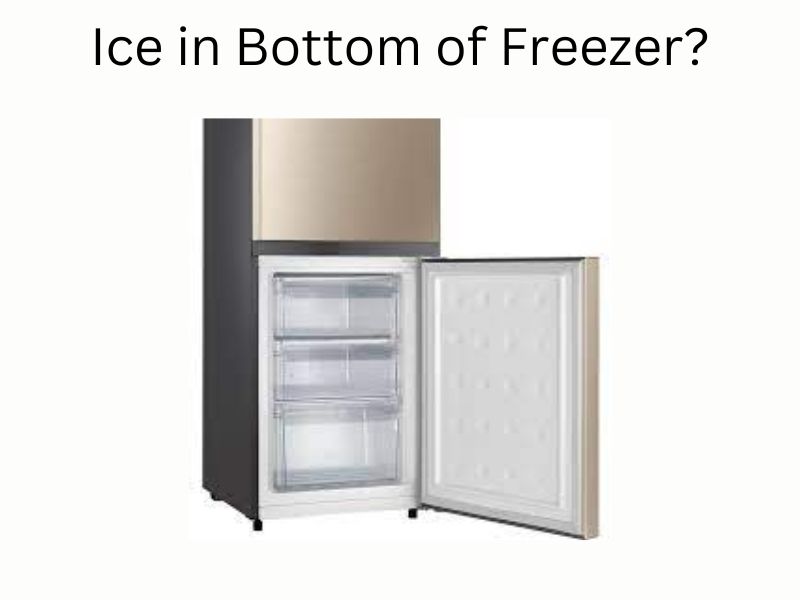
On the other hand, too much ice buildup can become an issue over time as it will eventually start to impact airflow inside your appliance. This could potentially lead to longer cooling times and even premature failure of certain components due to increased stress on them from a lack of airflow.
Therefore, it is important to properly monitor the amount of ice that builds up in the bottom of your freezer and take preventive action when necessary by removing or draining excess accumulation before any real damage is done.
Bottom Half of Freezer Not Freezing
If you notice that the bottom half of your freezer is not freezing, it could be due to a problem with the evaporator fan motor. The evaporator fan motor circulates cold air throughout the freezer and when it malfunctions, warm air can enter and prevent the bottom half from staying frozen.
If this is indeed what’s causing your issue, you’ll need to have a repair technician come in and replace or repair the part.
Why is My Freezer Only Freezing at the Bottom?
Your freezer may only be freezing at the bottom because of a damaged or blocked fan. The fan is responsible for circulating cold air around the unit, and can become clogged with dust or debris if not regularly cleaned. Another potential cause could be a faulty thermostat, which regulates how much energy the freezer uses to maintain temperature.
If either of these components are malfunctioning, it will result in uneven cooling within your appliance, causing only certain sections to reach the desired temperature.
To fix this issue you should check both parts for any problems and make sure they’re working properly before attempting more complex repairs.
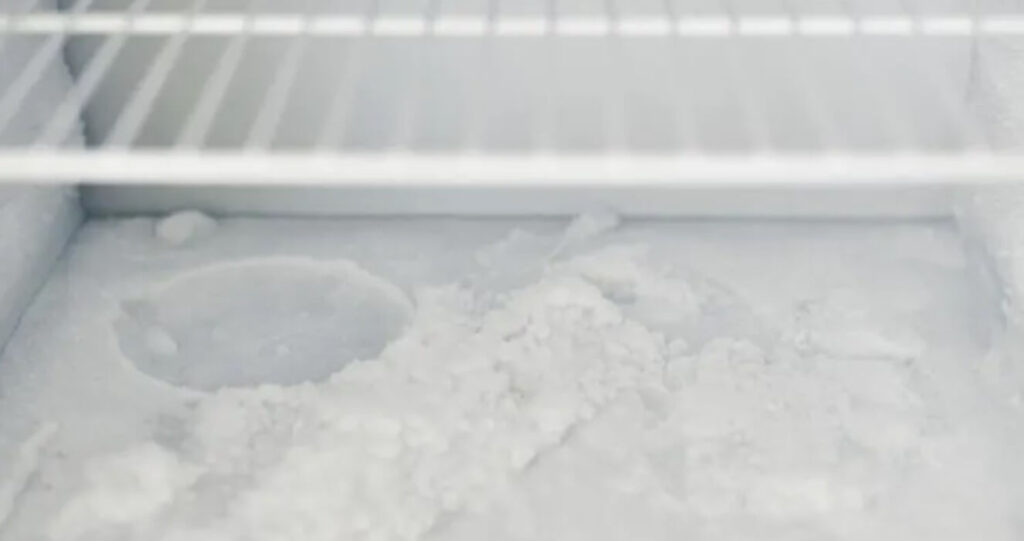
Why is Refrigerator Working But Freezer Not Freezing?
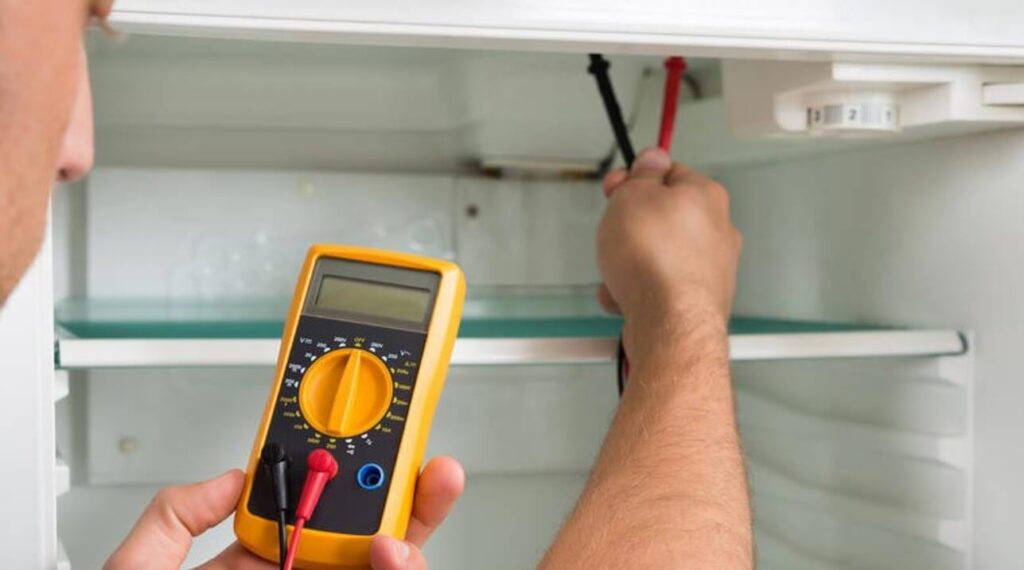
If your refrigerator is working but the freezer isn’t freezing, it could be an issue with the temperature control, defrost system, or evaporator fan.
To diagnose and repair this problem, you should inspect each of these components to ensure they are functioning properly. If any component is broken or malfunctioning, it can cause the freezer to not freeze correctly.
Once all components are inspected and repaired as needed, your freezer should start performing correctly again.
Freezer Not Cooling But Light Is On
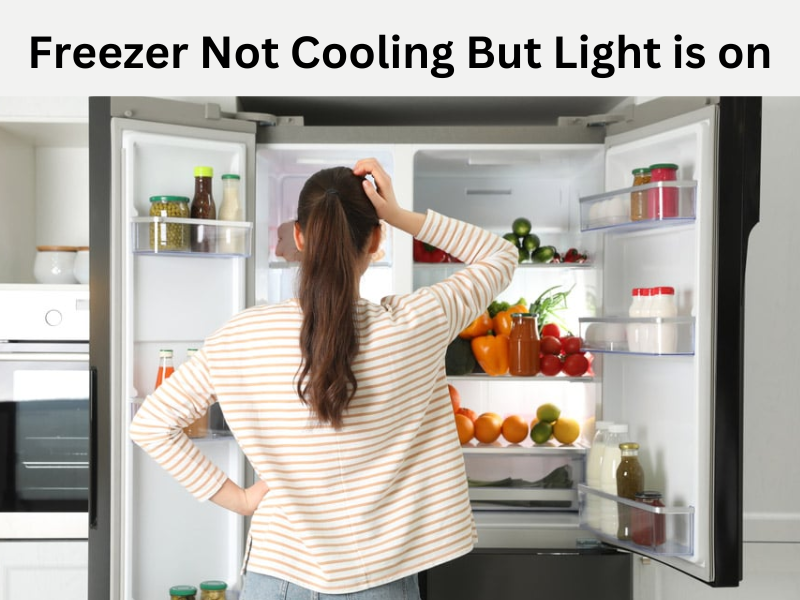
If your freezer is not cooling, and the light is still on, it’s likely due to a malfunctioning compressor or thermostat. Check these elements first before attempting any repairs. If the compressor isn’t running or if temperature settings are off, this can cause the freezer not to cool properly.
You may need to replace either element in order to get your freezer working again.
Freezer is Cold But Not Freezing
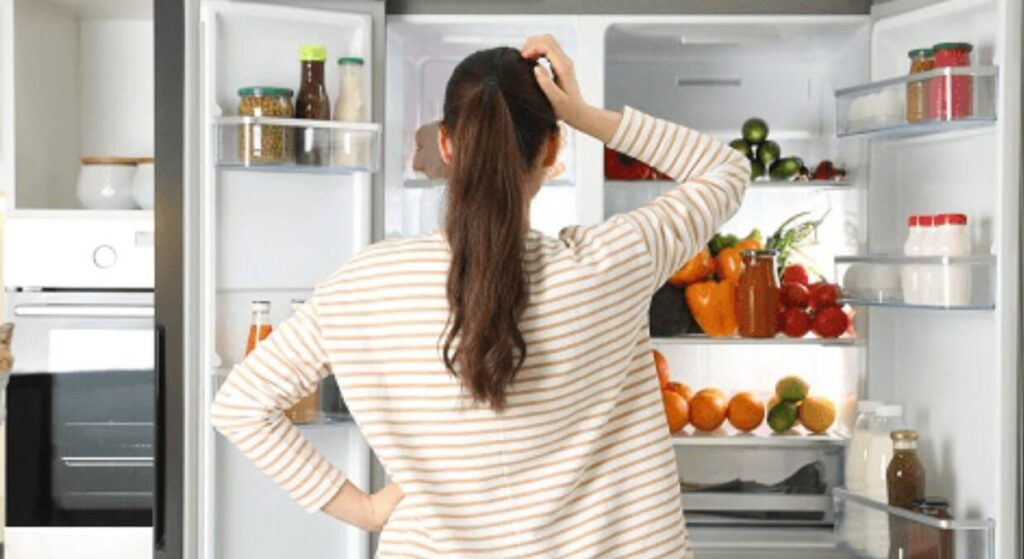
If you open your freezer and find that it is cold but not freezing, this could be a sign of something wrong with your appliance. It may mean that the thermostat is faulty or set too low, or it could be due to improper air circulation inside the freezer.
If possible, try adjusting the temperature setting on your refrigerator and see if that helps restore normal cooling levels.
If this does not work, then you should consider calling a professional for help in diagnosing and fixing any potential issues with your freezer.
Brand New Freezer Not Freezing
If your brand new freezer isn’t freezing, it could be a sign of a bigger problem. Before troubleshooting the issue, make sure to unplug the unit and check for any clogged vents or air flow obstructions.
If these are both clear, you may need to check the temperature settings and ensure they are set correctly.
In some cases, you may also need to clean the condenser coils or replace parts like thermostats or compressors if needed.
Freezer Stops Freezing Then Starts Again
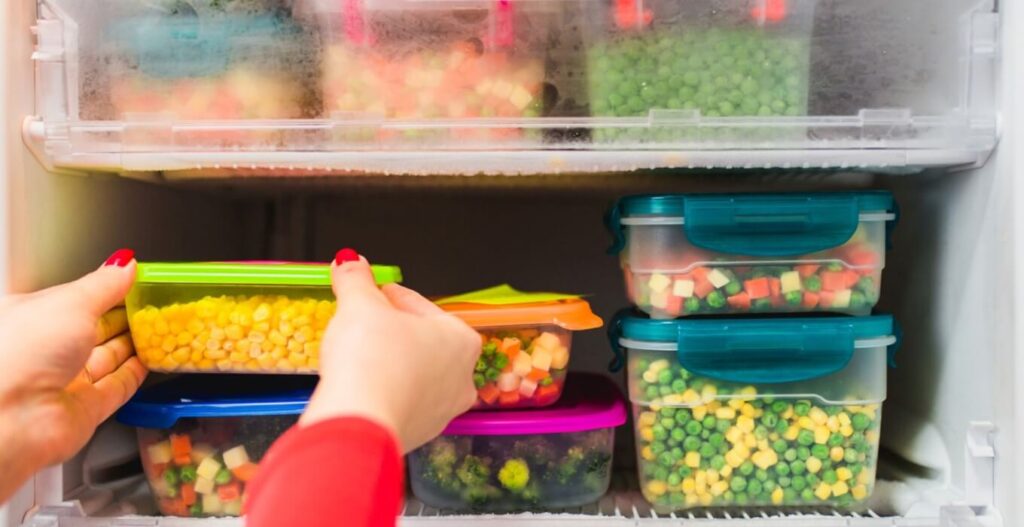
If your freezer randomly stops freezing and then starts up again, this could be a sign of an issue with the thermostat or compressor.
To determine what is causing the problem, it’s best to have a technician come in for an inspection. Regular maintenance can go a long way in preventing these types of issues from occurring in the first place.
Upright Freezer Not Working
Your upright freezer is not working, and it is not cooling properly. You might notice the contents inside starting to thaw, and though the freezer’s motor is running, it is not producing cold air.
Make sure to check the power supply and temperature settings, but if the issue persists, consider seeking professional repair to diagnose and fix the problem. This will help you avoid food spoilage and restore your freezer’s functionality.
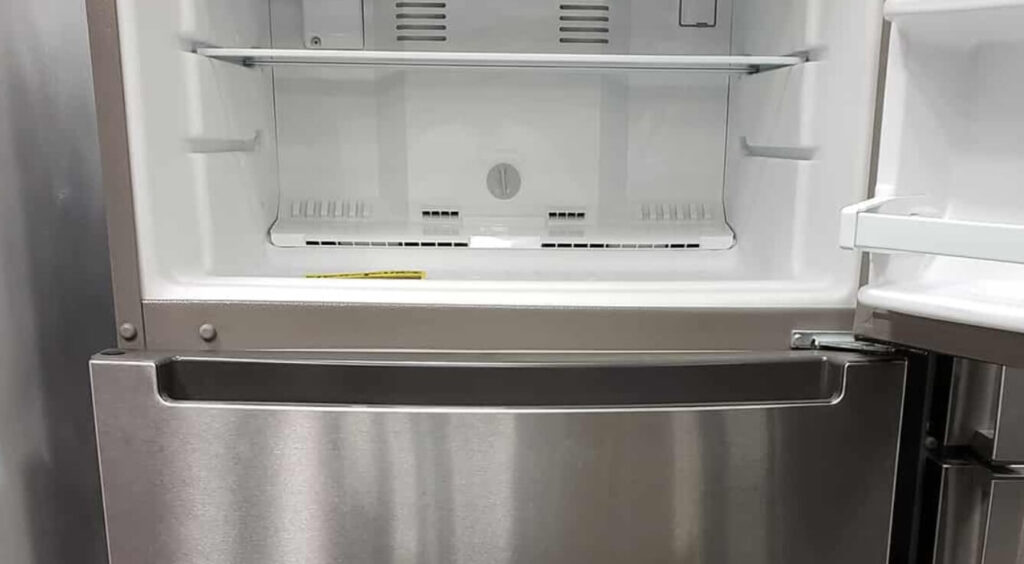
Upright freezer not freezing
If your upright freezer is not freezing, the possible causes could be a power supply issue, incorrect temperature settings, a damaged door seal, overloading with food, or a malfunctioning compressor.
Check the power connection, temperature settings, and door seal for problems. Avoid overloading the freezer and if the issue persists, seek help from a qualified appliance repair technician.
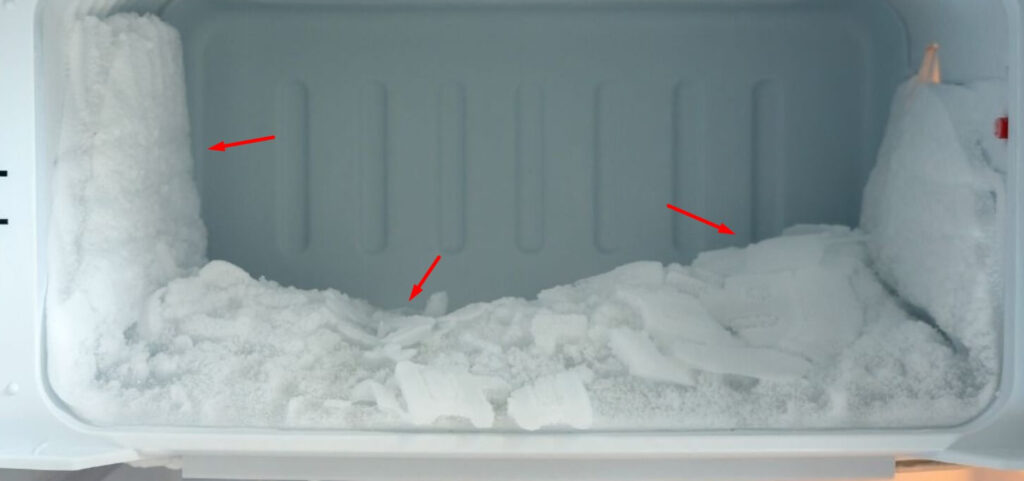
Whirlpool Freezer Not Freezing But Fridge is Cold
If you have a Whirlpool freezer that is not freezing, but the fridge is cold, it could be due to an issue with the thermostat. Check the temperature settings and make sure they are set correctly for both parts of your appliance. If it’s still not working properly, you may need to replace the thermostat in order to get your freezer back up and running again.
Conclusion
Conclusion: The source of the problem with your upright freezer not freezing is likely a faulty thermostat. Thankfully, it’s relatively easy to replace and can be done in under an hour with the right tools and knowledge.
Replacing the thermostat should get your upright freezer back up and running like normal, so you can store all your frozen food without worrying about spoilage.
